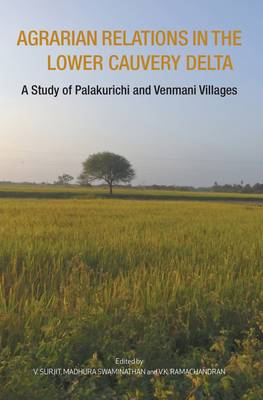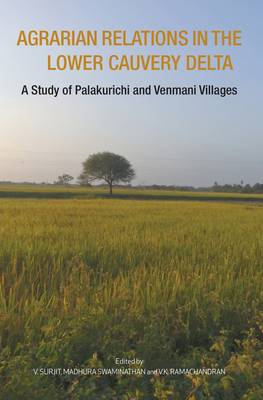
- Retrait gratuit dans votre magasin Club
- 7.000.000 titres dans notre catalogue
- Payer en toute sécurité
- Toujours un magasin près de chez vous
- Retrait gratuit dans votre magasin Club
- 7.000.000 titres dans notre catalogue
- Payer en toute sécurité
- Toujours un magasin près de chez vous
Description
The essays in the book explore the nature and direction of socio-economic change in the lower Cauvery delta. They draw primarily on the results of two census-type, schedule-based surveys of all households conducted in the villages of Palakurichi and Venmani in Nagapattinam district, Tamil Nadu, in 2018-19. The region in which the villages are located is historically associated with large agricultural surpluses from rice cultivation, in turn sustained by punishing forms of caste and class oppression. Recent decades, however, have seen great changes to the crop regime and to relations of agrarian production. The sharp decline in the supply of Cauvery water for irrigation to the region in the last two decades has accelerated this change and given it new dimensions.
The analyses and findings presented in the book discuss the manifold stresses on the socio-economic fabric of the region with the decline of the delta as a hub of rice cultivation. The gains achieved in the 1980s from the Green Revolution weakened, and no major new sources of non-agricultural production emerged within villages. The old forms of tyrannical landlordism and extra-economic oppression of Dalit agricultural workers - that had led to the massacre of 44 Dalits by landlords in Keelavenmani in 1968 - do not exist today, owing to sustained struggles by the working people led by the Communist parties. Nevertheless, unequal land ownership and landlessness and acute economic inequality continue to be significant features of the agrarian sector. An important new aspect of agrarian change, this study notes, is the replacement of the full-time agricultural labour force with a rural manual worker force that engages in both agricultural and non-agricultural wage labour. The essays also analyse other dimensions of agrarian change in the region - in employment and incomes, the forms of credit in operation, education, sanitation, and housing. The pace and path of economic change has placed rural Tamil Nadu ahead of many other Indian states, in terms of both economic performance and human development. Yet, without fundamental structural change, this book argues, the gains attained are incomplete. Here lies a central policy challenge to meeting the region's economic and democratic potential. Published in association with Foundation for Agrarian Studies, Bengaluru.Spécifications
Parties prenantes
- Auteur(s) :
- Editeur:
Contenu
- Nombre de pages :
- 412
- Langue:
- Anglais
- Collection :
Caractéristiques
- EAN:
- 9788195055951
- Date de parution :
- 27-02-24
- Format:
- Livre relié
- Format numérique:
- Genaaid
- Dimensions :
- 147 mm x 236 mm
- Poids :
- 816 g







